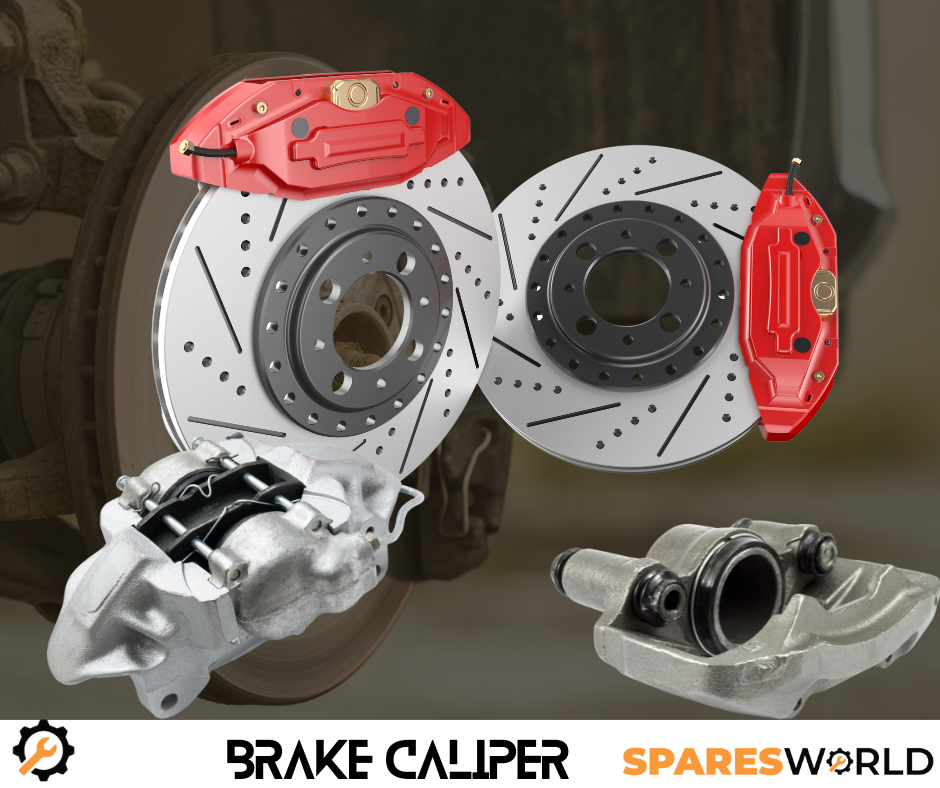When Was the Last Time You Checked Your Brake Calipers? – The Secret to Your Car’s Stopping Power

Your foot hits the brake pedal, and your car responds instantly, slowing to a halt. But have you ever wondered what’s happening behind the scenes to make that crucial stop? At the heart of your car’s braking system is the often-overlooked brake caliper—a component so essential that neglecting it could lead to serious safety risks. If you haven’t checked your brake calipers recently, you might be driving on borrowed time. Let’s take a thrilling dive into what brake calipers do, how to inspect them, and why they deserve more of your attention.
What Are Brake Calipers, and Why Are They Important?
Think of your brake calipers as the strong, silent guardians of your stopping power. They’re the muscle that squeezes the brake pads against the rotors to slow your vehicle down. Every time you press the brake pedal, the calipers activate, clamping down to create the friction needed to bring your car to a stop.
- The real deal: Without functioning calipers, your brake pads can’t create the friction necessary for stopping. In other words, no calipers = no brakes. It’s as simple as that.
- The truth: Brake calipers are exposed to extreme heat, moisture, and debris, which means they can wear down or malfunction over time. Ignoring them could cost you your ability to stop in an emergency.
How to Tell If Your Brake Calipers Need Attention
Here’s where things get serious. If your brake calipers are worn, seized, or malfunctioning, it can lead to a dangerous loss of stopping power. So how can you tell if your calipers are in trouble? Watch out for these telltale signs:
-
Uneven Braking If your car pulls to one side when you hit the brakes, it’s a red flag. This could mean that one of your calipers is sticking or not applying pressure evenly across both wheels.
- The thrill: You’re driving straight one moment, and the next, your car lurches to one side when braking—a sure sign something is wrong.
- The fix: Get your brake calipers checked immediately to avoid losing control during a stop.
-
Squealing or Grinding Sounds If you hear high-pitched squealing or grinding noises when braking, it’s not just your brake pads crying out for help—it could be your calipers failing to grip the pads correctly.
- The thrill: That spine-chilling screech is your car’s way of telling you that your calipers aren’t doing their job.
- The fix: Don’t wait until the grinding turns into damage. Get those calipers inspected and fixed before it’s too late.
-
Soft or Spongy Brake Pedal Does your brake pedal feel softer than usual, or like it’s sinking to the floor when you press it? This could be a sign of leaking brake fluid or a failing caliper that isn’t applying enough pressure.
- The thrill: Imagine pressing the brakes and feeling your pedal go soft, unsure if your car will stop in time.
- The fix: Get your braking system, including the calipers, checked by a professional ASAP.
How to Inspect Your Brake Calipers Like a Pro
Inspecting your brake calipers doesn’t require a mechanic’s degree, but it does take a keen eye and a little elbow grease. Here’s how you can do it:
-
Visual Inspection Start by taking off the wheels and checking the condition of your brake calipers. Look for signs of corrosion, rust, or brake fluid leaks around the calipers. A damaged or rusty caliper won’t function properly, and a leaky one means a loss of pressure in the braking system.
-
Test the Piston Movement The caliper’s piston should move smoothly when you press the brake pedal. If it’s sticking, jamming, or moving unevenly, it’s time for a replacement or a rebuild.
-
Check for Pad Wear Uneven brake pad wear is a surefire sign of a failing caliper. If one pad is thinner than the other, your caliper may not be applying pressure evenly across the rotor.
- The thrill: Inspecting your calipers gives you peace of mind, knowing your braking system is in top shape.
- The truth: A few minutes of inspection can prevent hours of repair and thousands of dollars in damage—or worse, a dangerous accident.
Why Regular Caliper Maintenance Matters
The importance of brake calipers can’t be overstated. Regularly inspecting and maintaining your calipers not only keeps your car stopping safely but also extends the life of your entire braking system. Worn calipers can cause brake pads and rotors to wear out faster, leading to more frequent (and costly) repairs.
- The thrill: Picture this—you’re driving down a steep hill, and your brakes feel flawless. That’s the result of well-maintained calipers doing their job.
- The fix: Check your calipers every time you inspect your brakes. Trust us—it’s worth it for the safety and peace of mind it provides.
Don’t Let Failing Calipers Stop You—Before They Stop You
Brake calipers may not get as much attention as your brake pads or rotors, but they’re just as crucial to your safety on the road. Ignoring them can lead to reduced braking power, uneven wear on your pads and rotors, and ultimately, a dangerous driving situation. Regular inspection and maintenance of your calipers can help prevent these issues, ensuring your car stops when you need it most.
At Sparesworld, we have everything you need to keep your brakes in top shape—from high-quality calipers to brake pads and rotors. Don’t wait for a brake failure—take control of your car’s stopping power today.

 Loading..
Loading..